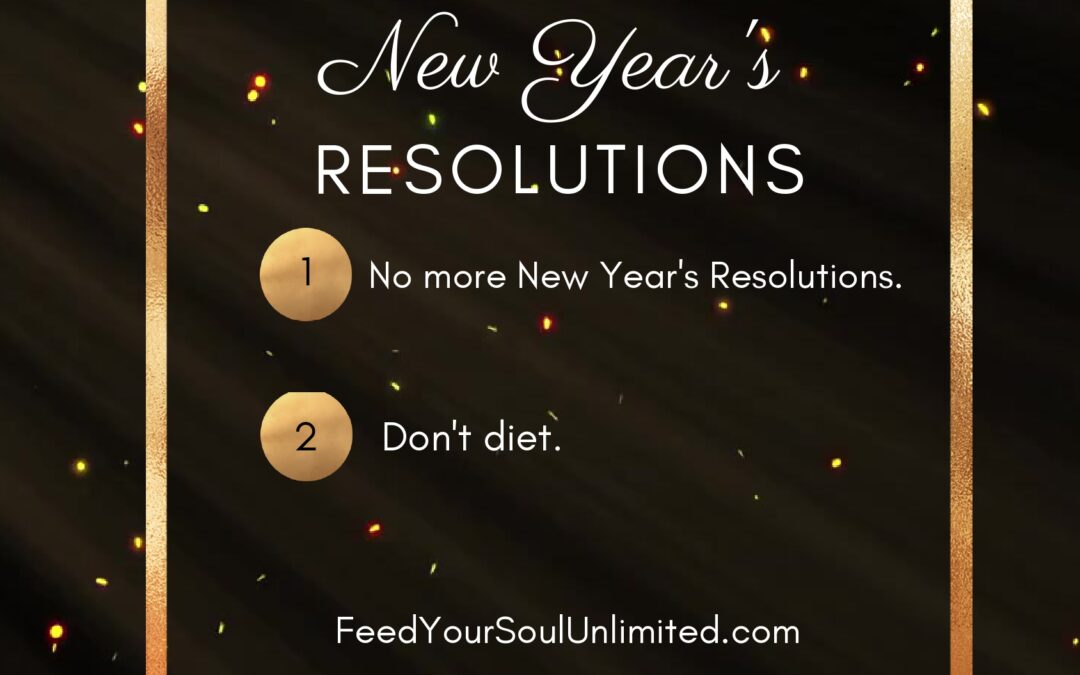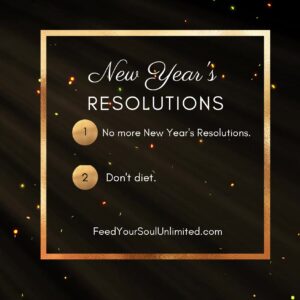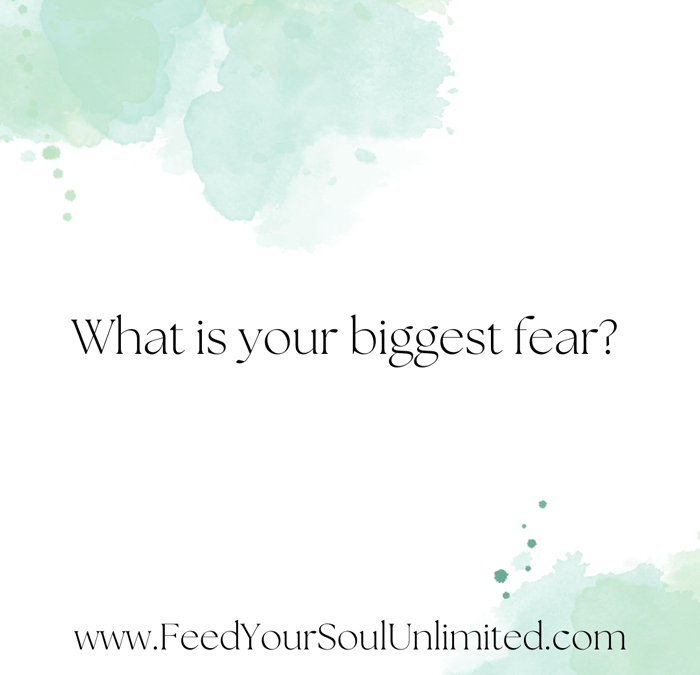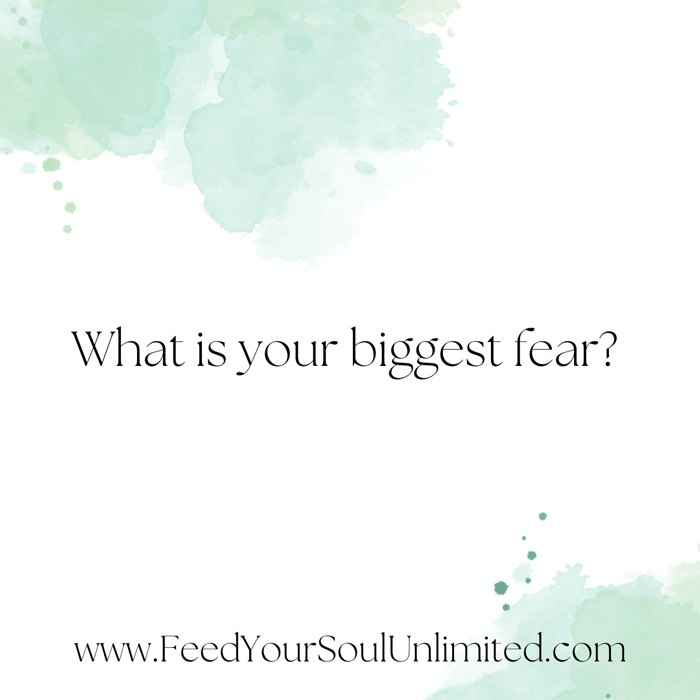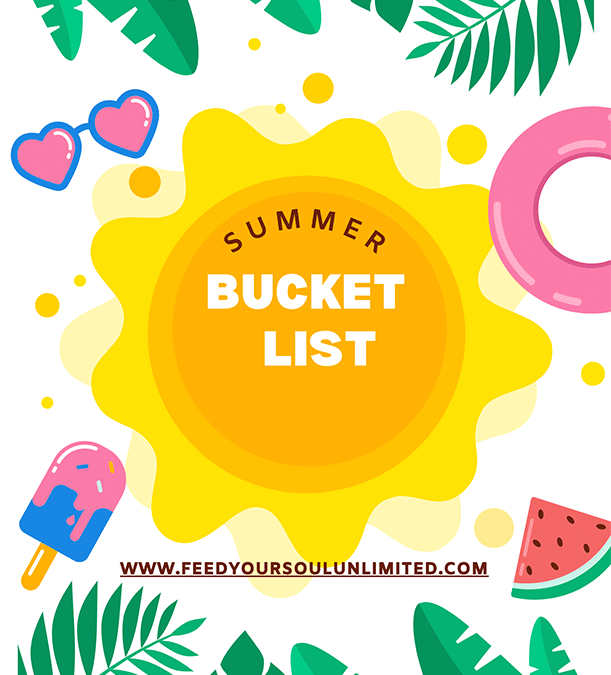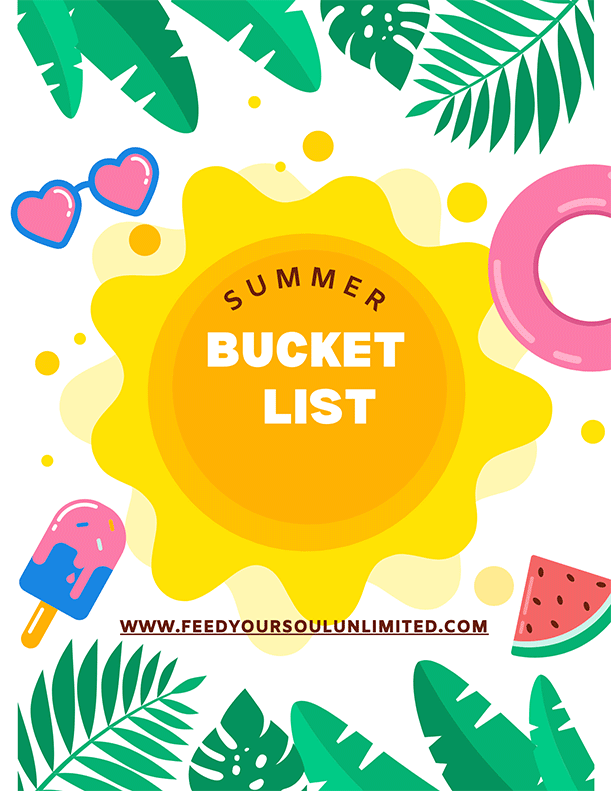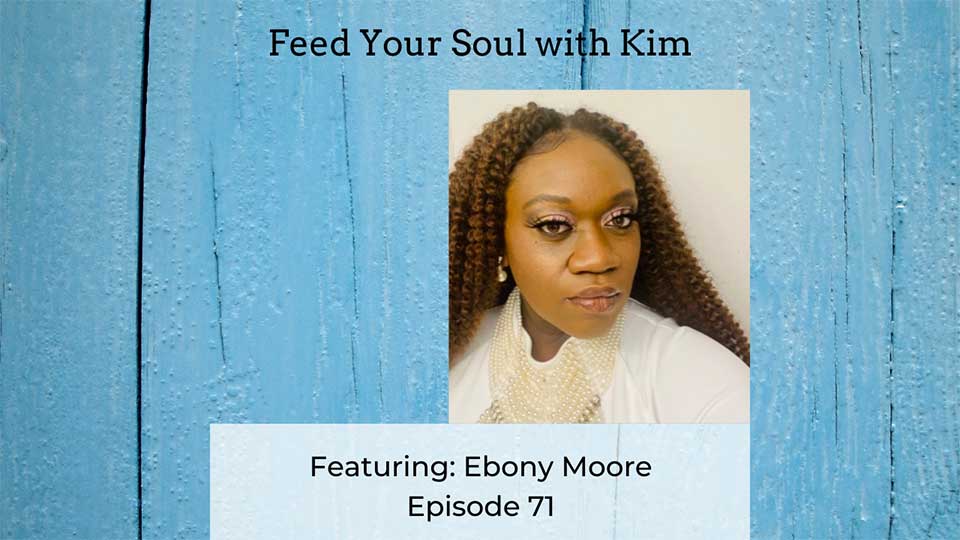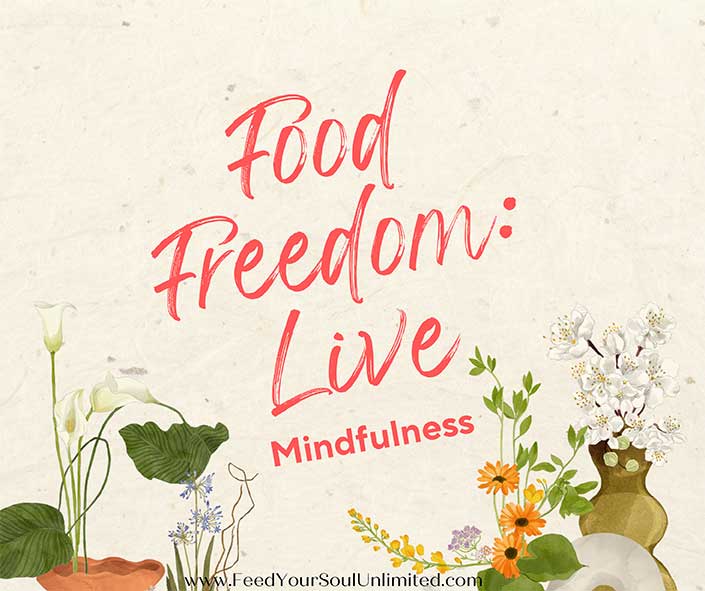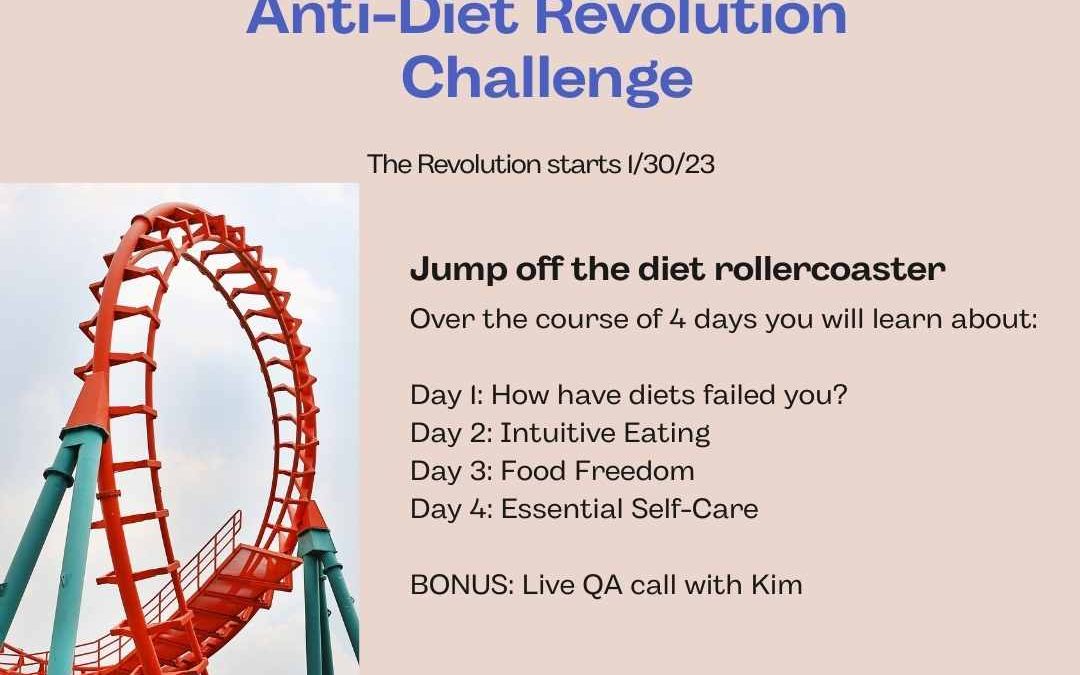
Anti-Diet Revolution
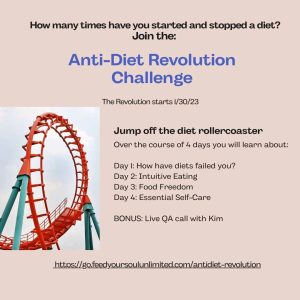

Having an Anti-Diet Revolution is a pretty bold statement and desire. I have been on a mission to help people make peace with food and their bodies for years. I use intuitive eating as the framework to guide my clients to success.
There is this societal norm that we are supposed to want to be “healthy” and thin and the only way to get there is to go on a diet. We have agreed that the only way to get to thinness and “health” is through dieting.
Why have we all bought into the idea that “health” and thinness is our goal? We have been sold to by the LARGE corporations that make a lot of money (hello 60+Billion-dollar industry) off us failing.
I have many examples of going on the same diet over and over expecting a different result. I look back and wonder why in the world I did that. I am not stupid. I now see that I bought into the idea of what my body should look like, and I needed eat differently to make it right.
I bought into the idea that something was wrong with me, because of my size. The problem is the way I tried to fix my weight was by dieting.
Dieting does not accomplish what they say it will. It does not equal health.
There is an inherent harm in dieting, because it is focused on the external: what you eat and how much you weigh. Diets do not address why you overeat, why you binge, why you are obsess with food and can’t stop eating. Dieting leads to deprivation which leads you back to binging and the cycle starts up again.
If dieting is not the answer to overeating, what is?
Intuitive Eating is the way to move out of dieting and into a place of peace with food.
Imaging being able to notice when you are hungry and make decisions about what you shall eat easily. Your decision is not based on some system where you must track how much you eat. Eating the food and enjoying it. Noticing when you are satisfied and stop eating. Feeling energized with the food you eat. Getting a rhythm with food where you have a sense of what foods you like, what you do not like. Feeling empowered to eat what you want and not overanalyze it. Being able to determine what are your right foods that fit well with your body. There is no obsession with food. You can enjoy what you eat and if you eat beyond fullness you are able to course correct.
What does it take to be an intuitive eater?
- Notice when you are hungry.
- Notice what are the foods that satisfy you and give you the energy you need.
- Eat when you are hungry and before you are overly hungry.
- Stop when you are satisfied or gently full.
- Allow yourself to eat the foods you really want.
- Notice feelings that are causing you concern and take care of them.
- Engage in self-care and self-love.
- Notice thoughts that are negative and have ways to deal with them.
- Have a mindfulness practice that is soothing.
- Engage in movement that is right for you.
It takes time and energy to embrace intuitive eating and it will be the best thing you can do for yourself.
To move towards Intuitive eating, we are going to have the Anti-Diet Revolution. What is the Anti-Diet Revolution? We look at diet, diet culture and how YOU have been led astray.
We cannot end at ending dieting. What will you do instead?
- Have a way to measure hunger and fullness. This is a simple and profound practice that takes guess work out of eating.
- Determine what leads you to overeat.
- Have action plan for your self-care that REALLY work.
- Be in a place where others understand what you are experiencing, and you feel in community.
Join us for the Anti-Diet Revolution starting soon. Sign up now to get access to this free series to help you move out of dieting and into a plan of action that works.
Kim McLaughlin, MA is a Psychotherapist, Speaker, Author, and Coach who specializes in working with people who suffer from binge eating and emotional eating. She is a Certified Intuitive Eating Counselor. She is the author of the best-selling book Feed Your Soul Nourish Your Life! A Six Step System to Peace with Food and the Amazon #1 Best Selling book Discovery Your Inspiration.
You can find Kim on her podcast Feed Your Soul with Kim and you can find it on all podcast platforms.
Wondering if you are an emotional eater? Sign up for the free Am I an Emotional Eater Quiz.

